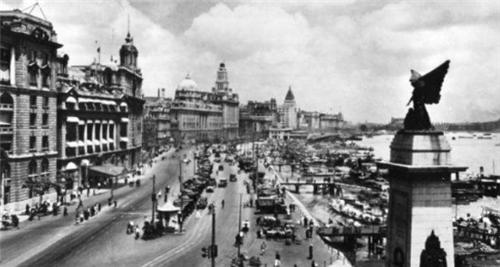Concessions, which refer to the places of residence of foreigners with administrative and legal autonomy, are usually established after the charter of 2 countries is signed. Unlike the cession of land, concession land remains nominally a lessor. On November 15, 1845, Britain established the first concession in modern history in Shanghai, China, which seriously violated the territorial integrity of our country.

From 1845 to 1902, a total of 27 concessions (also said to be 37 and 33) were opened in China, of which the British accounted for 7 and Japan accounted for 5, becoming the humiliating history of China's modern history, and the Qing government was criticized for it.
However, what few people know is that in fact, the Qing government also straightened its waist and set up a concession abroad, that is, the North Korean lease.
In 1882, a mutiny broke out in Korea that shocked the foreign countries, and Li Yunying, the biological father of Gojong of Joseon, used his military power to successfully seize power and wanted to carry out restoration. The Qing government took a look, and this still got it? (At this time, Korea, a vassal state of the Qing government) immediately sent troops to Korea, and quickly quelled the mutiny, arrested Dayuanjun and escorted him to China.
But at the same time, Japan also wanted to get a piece of the pie, and took the opportunity to weaken China's management of Korea, so it also sent troops to interfere in the internal affairs of Korea, in the face of a powerful Japan, North Korea naturally had nothing to say, so it soon signed the "Treaty of Jiwupu" with Japan, which included the right to garrison troops. When the Qing government heard this, a hundred were not happy, so they also asked the DPRK to sign a series of unequal treaties with itself, including: the "Sino-Korean Merchants' Andrthal Trade Charter", "Incheon Chinese Merchants' Concession Charter", and "Busan's Chinese Merchants' Concession Charter".
With these treaties, the Qing government could agree on tariff rights and so on in Korea, and then set up several concessions in Korea, such as Incheon and Busan, and there was another thing that made the Qing government particularly "proud", that is, all the construction costs of the concession were borne by the DPRK side, just as the Qing government had borne the construction costs of the British Concession in Shanghai. However, not long after, the Sino-Japanese Sino-Japanese War broke out, China was defeated, the Beiyang Marine Division was completely destroyed, and these concessions were naturally occupied by the Japanese army.
Subsequently, the Japanese army forced the Qing government to sign the "Maguan Treaty" to confirm the "independence" of Korea, and from then on, the clan relations between the Qing Dynasty and Korea were declared to end, so this history was quickly submerged, so to this day, many people do not know that the Qing government has set up a concession abroad.
In 1896, with the support of Russia, Gojong of Joseon established the Korean Empire, and since then changed the name of the country to "Han", so 2 years later, the Minister of Foreign Affairs of Korea and the Qing Dynasty signed the "Sino-Korean Treaty of Trade and Commerce", completely abolishing the residence of Chinese businessmen in Korea, but still allowing Chinese businessmen to operate in the former Incheon Qing Concession, later, it developed into "Incheon Chinatown", and preserved to this day, more than 20,000 overseas Chinese still live here, interested friends can go to see for themselves.
References: Historical Materials of Sino-Japanese-Korean Relations in the Qing Dynasty, Records of Emperor Gaozong